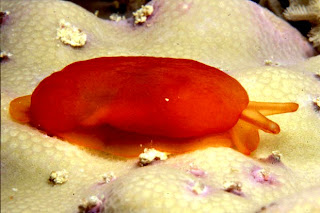
There has been a report http://www.timesonline.co.uk/tol/news/uk/science/article2748877.ece that a "toxic sea slug" has invaded UK waters. This story is based on a report that six specimens of the Sea hare (Aplysia fasciata) "have been confirmed to to have swum from the Spanish and Portuguese region of the Atlantic this autumn" to the Dorset region of the UK coastline. Most sea slugs are toxic as a defense against predators (so they are not dangerous unless you eat them) and it is debatable whether the specimens actually swam here. The researchers cited suggested that "climate change, faster sea currents and natural variations in population levels" could all be responsible for the 'influx'. Another possibility is the use of sea water as ballast by cargo ships. In some parts of the world, the transport of larval sea slugs in tank discharges into the sea before the vessel takes on cargo has been tentatively linked to the appearance of these marine organisms into geographically unusual locations. I think that there is currently a tendency to too quickly leap to global warming as an explanation for any unusual change in species distribution. It could certainly be a factor but alternative explanations must be discounted first before a real link could be established. After all, there were only 6 large specimens and only one year of observations! The sea slug shown is not Aplysia but is another 'toxic' species with sulphuric acid in its tissues.

%20mating%20NWCW.jpg)


No comments:
Post a Comment